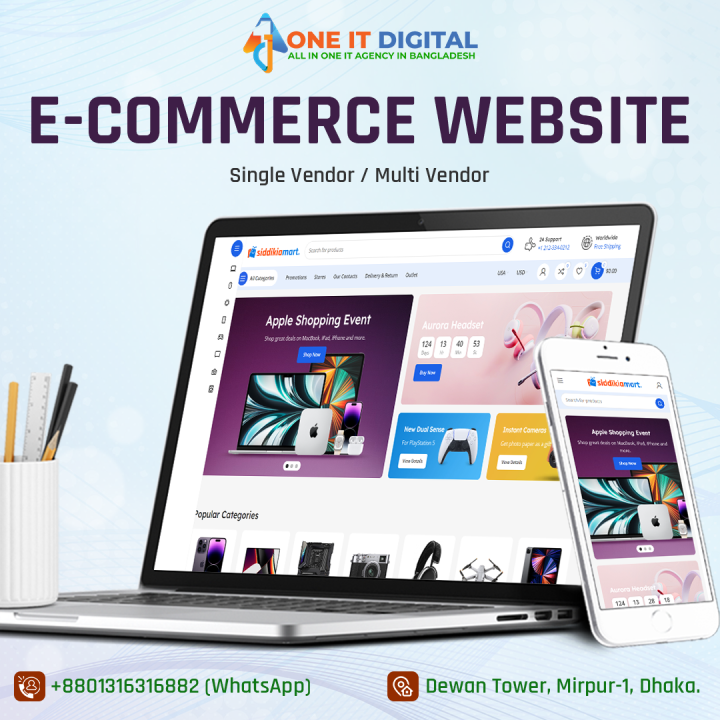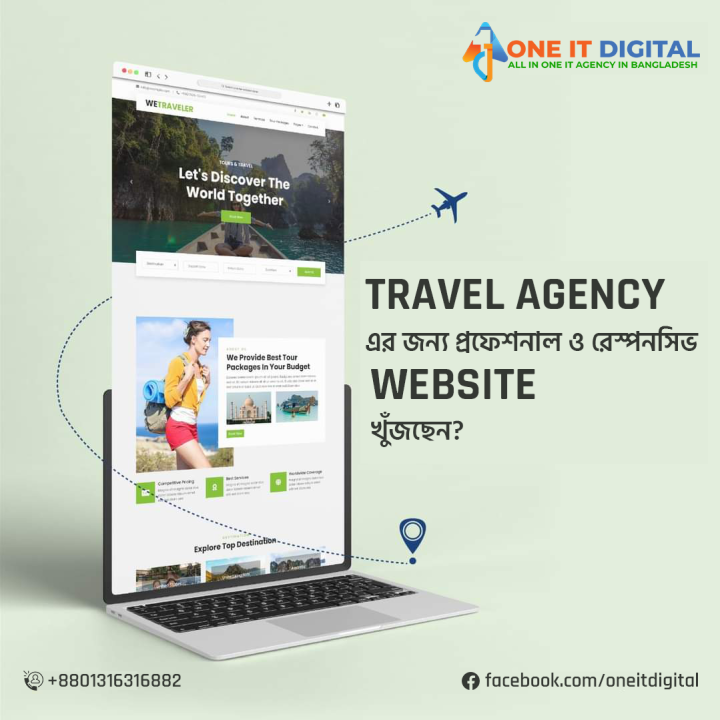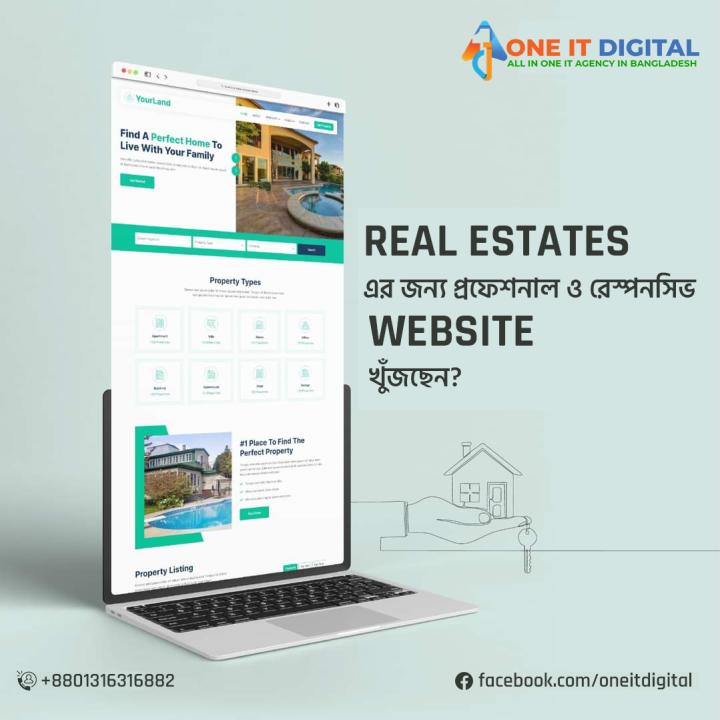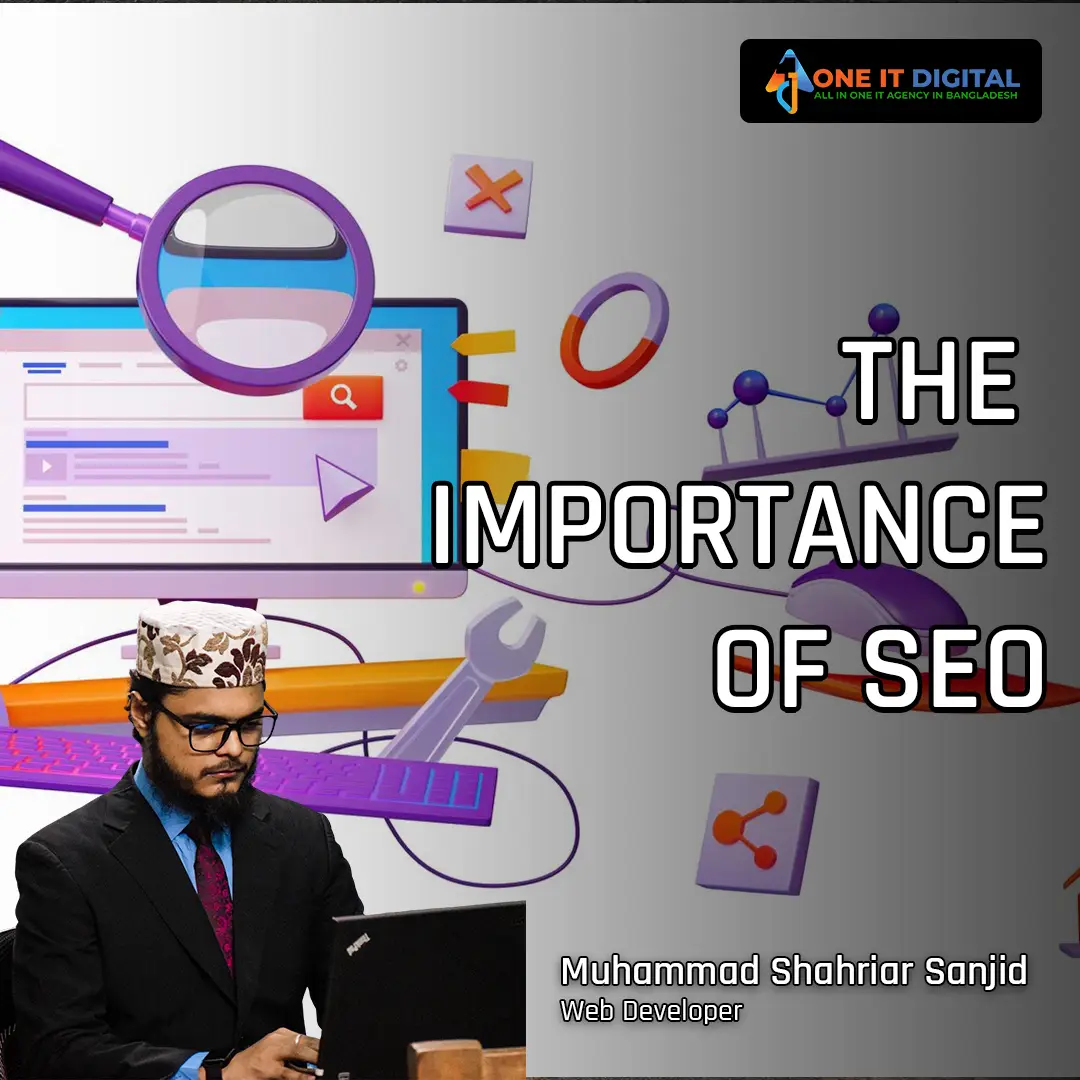The Importance of SEO for Your Website: Why It’s Essential for Online Success
In today's digital age, having a website is just the beginning of establishing your online presence. To truly succeed in an increasingly competitive online marketplace, your website must be visible to the right audience at the right time. This is where Search Engine Optimization (SEO) comes into play. SEO is the practice of optimizing your website to improve its visibility on search engine results pages (SERPs) and drive organic (unpaid) traffic. SEO is not just about search engines but also about creating a better experience for your users. If you're wondering why SEO should be a priority for your website, here are the key reasons why SEO is essential for online success.
1. Increased Organic Traffic and Visibility The majority of online experiences begin with a search engine query. Studies show that over 90% of web traffic comes from search engines like Google, Bing, and Yahoo. Ranking high on the SERPs for relevant keywords means more people will find your website, resulting in more traffic and, ultimately, more conversions. SEO helps you achieve higher rankings by optimizing your content and website structure so that search engines can easily understand what your site is about. With more visibility, you attract a larger audience, bringing in consistent, targeted traffic without the need for paid advertising.
2. Builds Credibility and Trust When your website ranks at the top of search engine results, users tend to trust your brand more. People generally view top-ranking websites as more credible and authoritative in their industry. Search engines like Google aim to deliver the most relevant and high-quality results to users, so achieving high rankings can make your website appear as a trusted resource. Good SEO practices, such as building backlinks from reputable websites, improving your site’s loading speed, and creating high-quality content, all contribute to building trust with both users and search engines. Over time, this trust can translate into customer loyalty and increased sales.
3. Better User Experience SEO isn’t just about optimizing for search engines; it’s also about enhancing the user experience on your website. Google's algorithms now prioritize user experience signals, such as mobile-friendliness, page speed, and website usability, in their ranking criteria. A well-optimized website is one that is easy to navigate, loads quickly, and provides useful, relevant content to visitors. Improving the overall user experience (UX) through SEO techniques helps reduce bounce rates, increases time spent on your site, and ultimately leads to more conversions. A seamless and satisfying user experience makes visitors more likely to return to your website in the future.
4. Cost-Effective Marketing Strategy One of the greatest advantages of SEO is that it is a cost-effective digital marketing strategy. While paid advertising campaigns can deliver immediate results, they stop generating traffic once your budget runs out. SEO, on the other hand, focuses on organic traffic, meaning that once your website is properly optimized and ranks well, it can continue to attract traffic without ongoing advertising expenses. The initial investment in SEO can bring long-term benefits. When done correctly, SEO keeps driving traffic to your website for months or even years, making it a sustainable strategy that offers a high return on investment (ROI).
5. Targeted Traffic and Higher Conversion Rates SEO allows you to attract highly targeted traffic. Unlike traditional advertising methods, where you reach a broad audience (many of whom may not be interested in your products or services), SEO helps you appear in search results for keywords that are directly related to your offerings. This means the people finding your website through organic search are already looking for what you have to offer, making them more likely to convert into paying customers. By focusing on the right keywords, optimizing your content, and enhancing user experience, SEO ensures that your website attracts visitors who are more likely to take action, whether that’s making a purchase, signing up for a newsletter, or contacting you for more information.
6. Keeps You Ahead of Competitors In today’s digital marketplace, businesses in virtually every industry are competing for visibility online. If your competitors are investing in SEO and you’re not, they’re likely capturing a larger share of the market. By optimizing your website for search engines, you can stay competitive, outperform other businesses in your niche, and attract a loyal customer base. Furthermore, SEO levels the playing field by allowing smaller businesses to compete with larger, more established companies. With the right strategy, even a small business can rank on the first page of Google and compete with industry giants.
7. Mobile SEO for Local Business Success Mobile optimization is an integral part of SEO, especially as more people use their smartphones to search for products and services. In 2021, mobile searches surpassed desktop searches, and that trend is only growing. Search engines like Google prioritize mobile-friendly websites in their rankings, meaning that if your site isn’t optimized for mobile devices, you’re likely losing potential traffic. Local SEO is also crucial for businesses that rely on attracting local customers. When someone searches for “restaurants near me” or “plumbers in [city],” search engines display local results first. Optimizing your site for local SEO ensures that your business shows up in relevant local searches, driving foot traffic and online inquiries.
8. Measurable Results and Continuous Improvement One of the biggest advantages of SEO is that it provides measurable results. Unlike traditional marketing methods, where it’s difficult to track the effectiveness of campaigns, SEO allows you to measure nearly every aspect of your strategy. With tools like Google Analytics and Google Search Console, you can track keyword rankings, website traffic, click-through rates, bounce rates, and conversion rates. This data gives you deep insights into how your SEO efforts are performing and where you can make improvements. SEO is not a one-time effort; it’s an ongoing process that requires continuous optimization and adjustments to stay ahead of algorithm updates and changes in search trends.
9. Long-Term Strategy for Sustainable Growth While SEO does take time to show results, it’s a long-term strategy that can generate consistent traffic for years to come. Once you achieve strong rankings, maintaining them requires less effort than gaining them, making SEO a sustainable growth strategy. Investing in SEO means investing in the future of your business. As you continue to optimize your website, produce valuable content, and build a strong online presence, you’ll experience steady growth in traffic, leads, and revenue.
Conclusion In the competitive world of online business, SEO is essential for your website's success. It increases your visibility, drives organic traffic, builds trust, and provides a high ROI compared to other digital marketing strategies. Whether you’re a small business or an established enterprise, investing in SEO is a must if you want to stay competitive, grow your brand, and reach your target audience. With the right SEO strategy, your website can become a powerful tool that continuously attracts customers, boosts sales, and helps you achieve your business goals in the digital age. Don’t wait to optimize your website for search engines—start today and reap the benefits of SEO for years to come.











